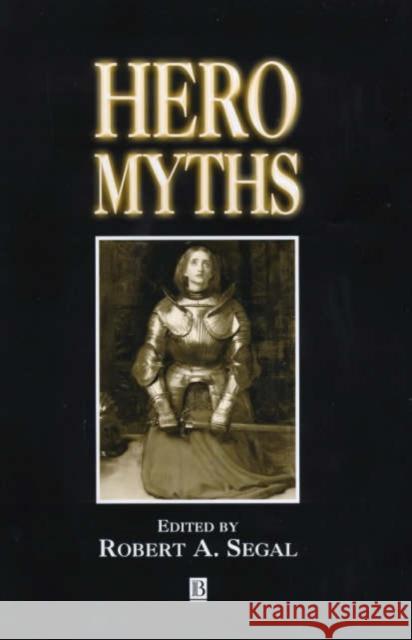Hero Myths: A Reader » książka



(netto: 565,84 VAT: 5%)
Najniższa cena z 30 dni: 590,48
ok. 30 dni roboczych.
Darmowa dostawa!
Hero Myths: A Reader provides a selection of 25 stories about heroes from around the world.
"This welcome book by an expert provides at last the text we have long needed for the multi–cultural and interdisciplinary lectures we are more and more required to offer. A lucid introduction, mercifully free from obscurantist jargon provides various contexts, historical, psychological, mythological and more in which we can explain the heroes."
Professor William M. Calder III, University of Illinois, Champange
"This book is timely, necessary, innovative, and follows sound scholarly principles." Dan Ben–Amos, Professor of Folklore and Folklife, University of Pennsylvania
"This anthology will fill a gap, and will do so with distinction." Robert Ackerman, Director, Liberal Arts, The University of the Arts, Philadelphia
"Robert Segal′s collection of readings offers us something towards understanding the genesis and range of the hero myth and therefore indirectly of analytical psychology ... Segal′s book gives an introduction to the hero′s ′thousand faces′." Journal of Analytical Psychology
"The selection of material that Segal brings together in this work is wide ranging. This book does what it sets out to do by providing a useful sourcebook for the growing variety of hero myth – a variety which is surely set to increase and develop in the years ahead." Journal of Contemporary Religion
"Eminently suitable for classroom use." Journal of American Folklore
Acknowledgments.
Introduction.
The Readings:.
1. Sigurd (Icelandic/Norse): Hero as Warrior.
2. John Henry (American): Hero of Strength.
3 .Finn (Irish/Celtic): National Hero.
4. Duke of Wellington (English): National Hero.
5. George Washington (American): National Hero.
6. Robin Hood (English): Class Hero.
7. Coyote (Native American): Cultural Hero.
8. Maui (Hawaiian/Polynesian): Hero as Trickster.
9. Christopher Columbus (Italian): Hero as Explorer.
10. Penthesilea (Amazonian): Female Hero as Male.
11. Eve (Biblical): Defiant Hero.
12. Prometheus (Ancient Greek): Defiant Hero.
13. Oedipus (Ancient Greek): Tragic Hero.
14. Job (Biblical): Tragic Hero.
15. Joan of Arc (French): Hero as Saint / Hero as Martyr / Female Hero as Male.
16. Galileo (Italian): Intellectual Hero.
17. Arjuna (Indian): Reluctant Hero.
18. Gilgamesh (Sumerian): Failed Hero.
19. Sisyphus (Ancient Greek): Absurd Hero.
20. Don Quixote (Spanish): Hero as Madman.
21. Davy Crockett (American): Comic Hero.
22. Elvis Presley (American): Hero as Entertainer.
Index.
Robert A. Segal is Professor of Theories of Religion at Lancaster University. He previously taught at Reed College, Standford University, University of Pittsburgh and Tulane University. He is the author of, among other books, Joseph Campbell: An Introduction (1987), Theorizing About Myth (1999), and editor of Jung on Mythology (1998), In Quest of the Hero (1990), and The Myth and Ritual Theory (Blackwell Publishers, 1998). He is also the European Editor of the journal Religion.
This
Reader collects 25 stories of heroes of all kinds from around the world. Included are both non–Western and Western, female and male, modern and ancient, young and adult, lowly and noble, comic and tragic, national and universal, and historical and fictional heroes. Failed as well as successful heroes are represented, as are anti–heroes as well as conventional heroes.
Hero Myths offers not only an array of kinds of hero myths but also a guide to understanding the myths selected. In a substantial introduction, Robert Segal, a leading authority on theories of myth, provides an overview of both the history of the study of heroes and the history of the study of hero myths from the fields of psychology, anthropology, folklore, literature, and religious studies.
1997-2026 DolnySlask.com Agencja Internetowa
KrainaKsiazek.PL - Księgarnia Internetowa









